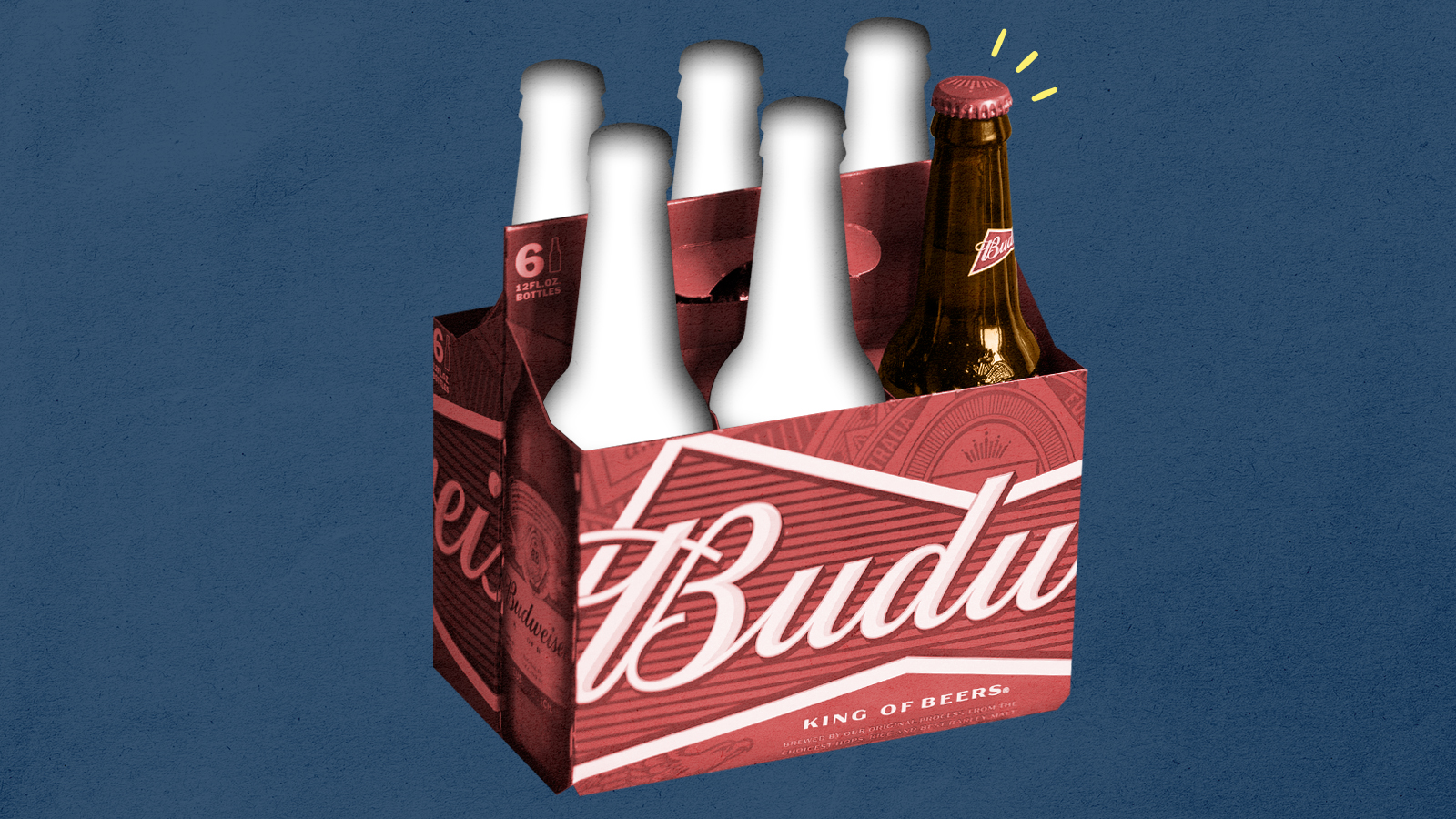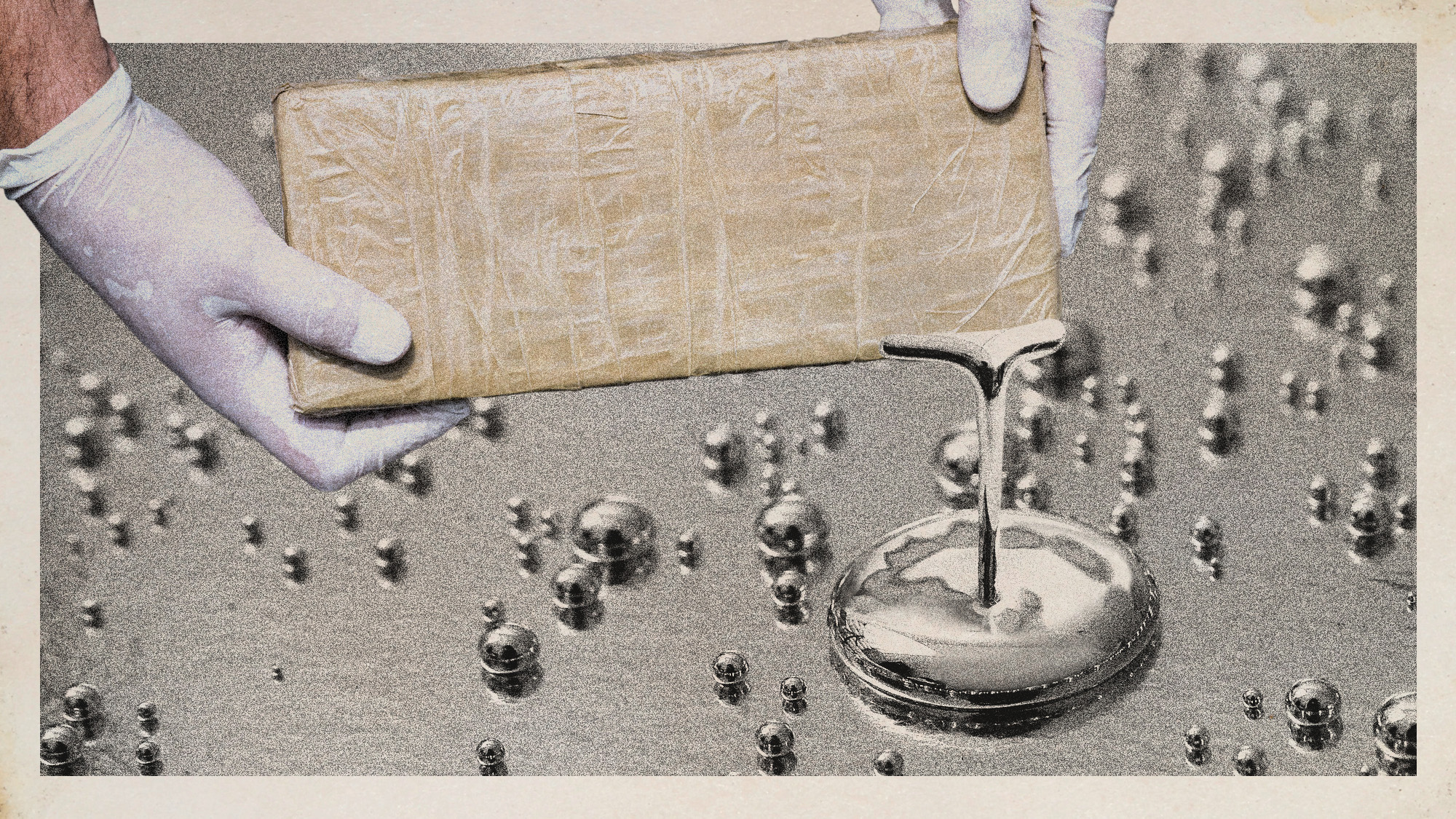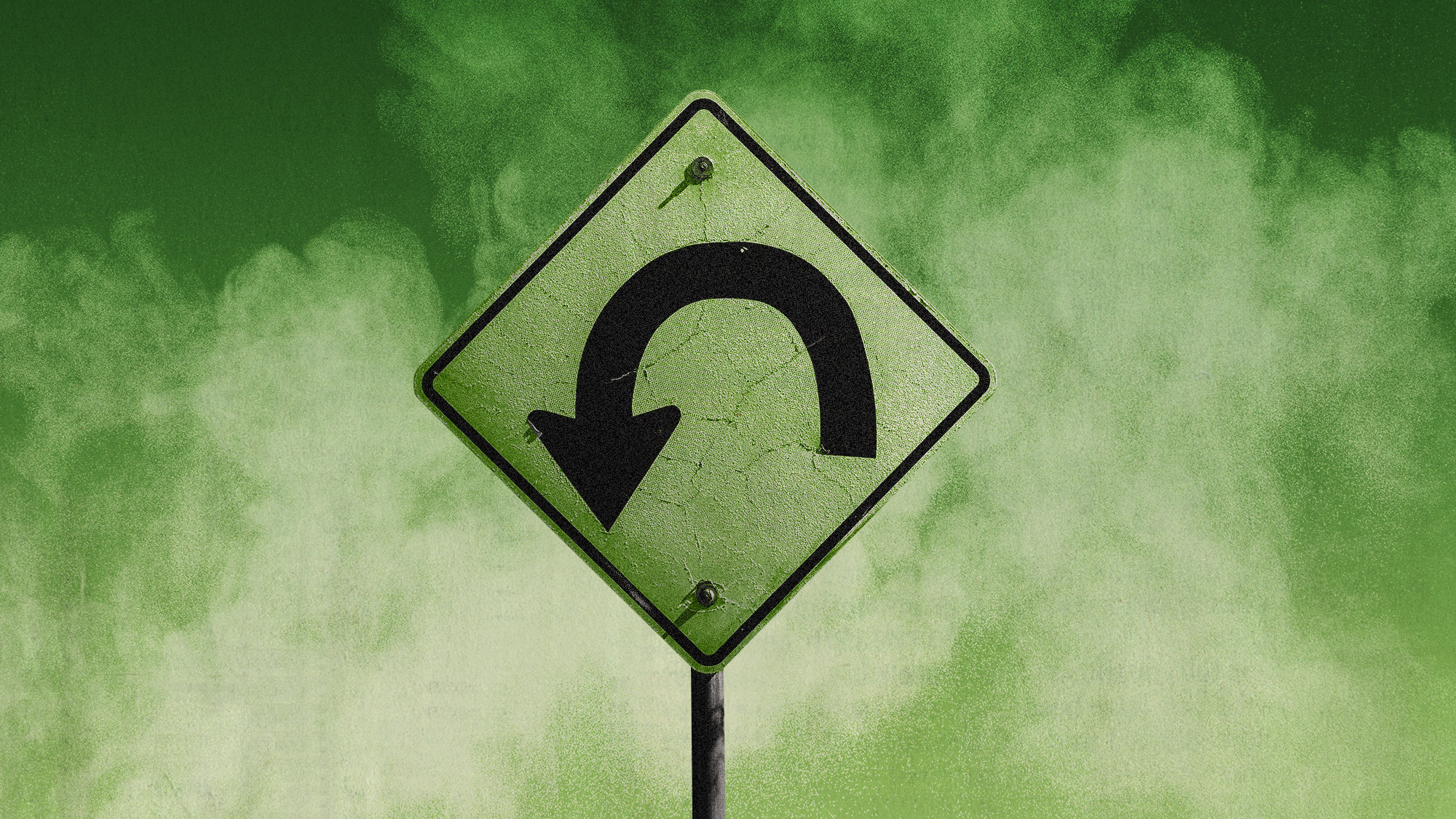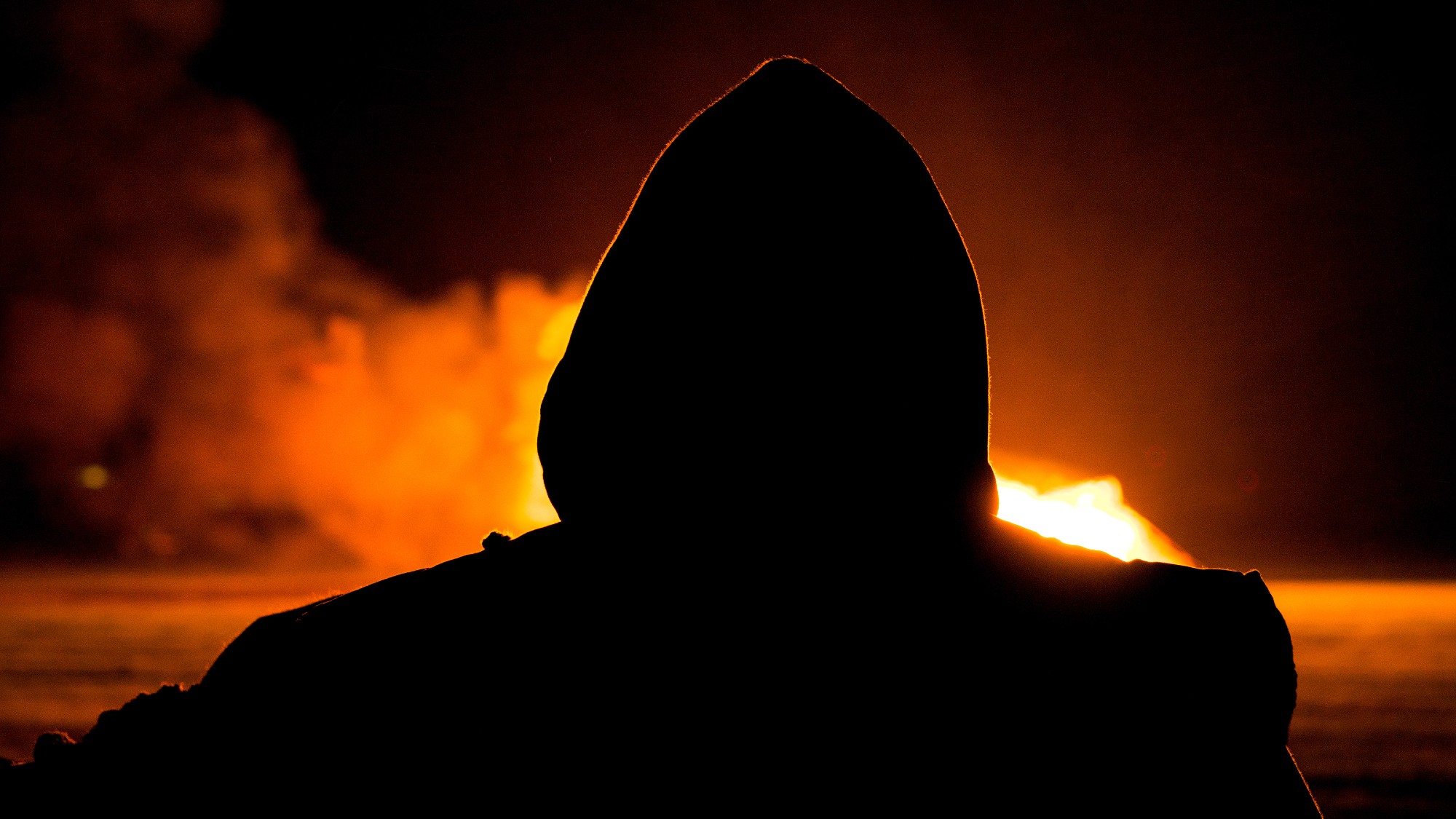What does 'Cali sober' mean?
The latest form of abstinence might not involve abstaining at all


A free daily email with the biggest news stories of the day – and the best features from TheWeek.com
You are now subscribed
Your newsletter sign-up was successful
When you make a purchase through links on our site, we may earn a commission
A growing number of people are reconsidering their relationship with intoxicating substances, and some are choosing to do it West Coast style. Is the "Cali sober" movement part of a more significant cultural shift away from drinking? Here's everything you need to know:
What does it mean to be Cali sober?
There isn't an official definition of the term, but to some, that is the point of this approach to moderating substance use. "Cali sober" is a version of sobriety that challenges the idea that abstinence is the only way to change your relationship with intoxicating substances. Some people call themselves Cali sober because they replace alcohol and other addictive substances with marijuana. Others use the label to define their moderate use of alcohol, marijuana, and psychedelics while avoiding other drugs. The spread of cannabis legalization and a growing trend of "sober curiosity" has helped propel this semi-sober option's popularity.
The Week
Escape your echo chamber. Get the facts behind the news, plus analysis from multiple perspectives.

Sign up for The Week's Free Newsletters
From our morning news briefing to a weekly Good News Newsletter, get the best of The Week delivered directly to your inbox.
From our morning news briefing to a weekly Good News Newsletter, get the best of The Week delivered directly to your inbox.
Andrew DeAngelo, a co-founder of the cannabis reform non-profit Last Prisoner Project, says the trend offers a different view on sobriety. "It allows for individual interpretation and tweaks. Cali sober means not being addicted to any intoxicant and having a balanced relationship with cannabis and psychedelics as an additive to good living, not something that takes away from life or gets you all strung out," DeAngelo writes for Forbes.
The origin of the term is unclear, but journalist Michelle Lhooq used the word in a 2019 essay for Vice about her decision to give up most recreational drugs except weed and psychedelics after moving to California from New York. She said being Cali sober allowed her to "still party and expand my mind, but without the selfishness and addiction."
The term gained attention in 2021 after pop star Demi Lovato, who suffered from a near-fatal opioid overdose in 2018, released a song called "California Sober." During a CBS Sunday Morning interview in March 2021, Lovato said that they found the moderate approach worked well for them in place of complete sobriety. However, by December, they took to Instagram to disavow their previous stance on the Cali-sober lifestyle. They said, "Sober sober is the only way to be."
How do addiction specialists feel about this approach?
While definitive research about the benefits of medicinal marijuana is still lacking, early studies and anecdotal evidence suggest that cannabis could help alleviate chronic pain and treat other ailments without the inherent risks of pharmaceutical opioids. Cannabis researchers have also initiated studies into whether it can help lessen the symptoms of opiate and alcohol withdrawal. Still, the inconclusive data and ambiguity of the Cali sober lifestyle leave room for addiction specialists to disagree about its efficacy.
A free daily email with the biggest news stories of the day – and the best features from TheWeek.com
Some consider Cali sober an informal option for harm reduction. Dr. Marlene Martin, a UC San Francisco addiction specialist, says she works with patients to determine their treatment goals since not everyone wants to abstain, per an op-ed in the Los Angeles Times. "For some people, it's reducing, for some it's discontinuing, for some people it might be harm reduction — not getting HIV or not overdosing," she said. "There are lots of ways people who use drugs can improve their health and well-being."
Other specialists are skeptical about the pitfalls of moderation for those struggling with addiction. "I think substituting one intoxicant for another has a lot of dangerous pieces to it," said George Koob, director of the National Institute on Alcohol Abuse and Alcoholism, per the L.A. Times. "What if you decided to smoke marijuana and then decided to drink a little alcohol? An intoxicant can help with withdrawal, but it can also act as a cue and trigger craving for a drug."
Dr. Brian Couey, the director of outpatient services at the Betty Ford Center, warns that addiction has more to do with how the brain reacts to chemicals than with the substances themselves, meaning that for most, "complete abstinence tends to work the best."
"If you have actual addiction — a substance-use disorder — and you continue to alter your brain chemistry through chemical misuse, the addictive neural pathways in your brain are not going to be allowed to heal and recover," he said. "If you continuously raise your dopamine levels artificially through chemical misuse, whatever the chemical is, you're likely to fall into problematic behaviors."
Is the 'sober-curious' wave a fad or an indication of a cultural shift?
The Cali sober lifestyle is just one aspect of a growing movement toward temperance that indicates people's attitudes toward alcohol consumption may be shifting. Abstinence challenges like Dry January are also a part of the aptly named sober-curious movement, a trend that has attracted more adherents over the past few years. Studies suggest that millennials and Gen Z are leading the way by drinking less than other age groups, per The Washington Post.
While some had initially argued that the sober-curious movement would fizzle out, it has instead taken on a life of its own, leading to a shift from top alcohol companies. Many brands, such as Budweiser, Gordon's, and Tanqueray, are cashing in with their own booze-free creations. A trade group called the Adult Non-Alcoholic Beverage Association launched in 2021 and currently includes 65 companies, per the Post. With alcohol-free bars also on the rise, it appears that businesses are accepting the shift away from drinking in the new temperance movement.
Even as sobriety grows in popularity, though, alarming data from the pandemic shows a rise in alcohol-related deaths. Holly Whitaker, author of The New York Times best-selling book Quit Like a Woman: The Radical Choice to Not Drink in a Culture Obsessed with Alcohol, told Dame Magazine, "We're starting to see two really emergent things. An acceleration of addiction in the wake of the pandemic, but then we are also seeing people who are making different choices and the normalization of sobriety."
Theara Coleman has worked as a staff writer at The Week since September 2022. She frequently writes about technology, education, literature and general news. She was previously a contributing writer and assistant editor at Honeysuckle Magazine, where she covered racial politics and cannabis industry news.
-
 How the FCC’s ‘equal time’ rule works
How the FCC’s ‘equal time’ rule worksIn the Spotlight The law is at the heart of the Colbert-CBS conflict
-
 What is the endgame in the DHS shutdown?
What is the endgame in the DHS shutdown?Today’s Big Question Democrats want to rein in ICE’s immigration crackdown
-
 ‘Poor time management isn’t just an inconvenience’
‘Poor time management isn’t just an inconvenience’Instant Opinion Opinion, comment and editorials of the day
-
 Man charged over LA’s deadly Palisades Fire
Man charged over LA’s deadly Palisades Firespeed read 29-year-old Jonathan Rinderknecht has been arrested in connection with the fire that killed 12 people
-
 Mexico’s forced disappearances
Mexico’s forced disappearancesUnder the Radar 130,000 people missing as 20-year war on drugs leaves ‘the country’s landscape ever more blood-soaked’
-
 Illicit mercury is poisoning the Amazon
Illicit mercury is poisoning the AmazonUnder the Radar 'Essential' to illegal gold mining, toxic mercury is being trafficked across Latin America, 'fuelling violence' and 'environmental devastation'
-
 Thailand is rolling back on its legal cannabis empire
Thailand is rolling back on its legal cannabis empireUnder the Radar Government restricts cannabis use to medical purposes only and threatens to re-criminalise altogether, sparking fears for the $1 billion industry
-
 Bombing of fertility clinic blamed on 'antinatalist'
Bombing of fertility clinic blamed on 'antinatalist'speed read A car bombing injured four people and damaged a fertility clinic and nearby buildings in Palm Springs, California
-
 Narco subs are helping to fuel a global cocaine surge
Narco subs are helping to fuel a global cocaine surgeThe Explainer Drug smugglers are increasingly relying on underwater travel to hide from law enforcement
-
 Mexico extradites 29 cartel figures amid US tariff threat
Mexico extradites 29 cartel figures amid US tariff threatSpeed Read The extradited suspects include Rafael Caro Quintero, long sought after killing a US narcotics agent
-
 What role did arsonists play in the California wildfires?
What role did arsonists play in the California wildfires?In the Spotlight Are individuals responsible for starting or worsening the blazes in Los Angeles?
